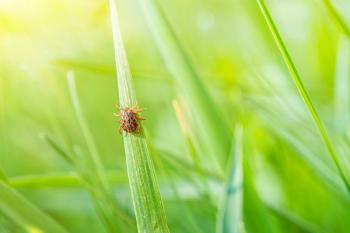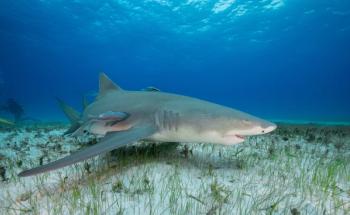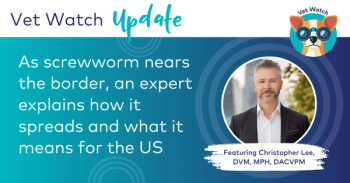
Toxoplasma update (Proceedings)
Domestic and wild felids are the definitive host for the protozoan Toxoplasma gondii.
Domestic and wild felids are the definitive host for the protozoan Toxoplasma gondii. The oocysts of Toxoplasma are extremely environmentally resistant and human and animal infections can occur months or possibly even years after the cat has excreted the oocysts. As such, cat feces-contaminated gardens, sandboxes, and other outdoor recreational areas may serve as a source of infection for humans and animals. In toxoplasmosis, infection occurs primarily by ingestion of sporulated oocyst in cat feces- contaminated soil or water or tissue cysts in undercooked or raw meat. Upon ingestion of tissue or environmental cysts, the parasites are released, penetrate the intestinal bilayer, and replicate rapidly inside host cells. Rapid proliferation is responsible for systemic dissemination of the parasite, and most of the pathology associated with acute toxoplasmosis. Currently, toxoplasmosis is considered the third most frequently diagnosed food borne disease in the US and approximately 60 million US citizens are infected with the parasite. Higher frequency of T. gondii seroprevalence has been disclosed in free-roaming cats compared to pet cats, with the lowest seroprevalence in cats kept indoors.
Although the risk of infection of human infection through ingestion of oocysts has been less common than infection from ingestion of undercooked or raw meat, recent research suggests otherwise. A recently developed sporozoite specific antibody has been developed which allows for serological distinction between oocyst and tissue cyst infection given that sporozoites are only present in oocysts . Of 163 individuals in acute stage of toxoplasmosis infection 103 (63%) were positive for sporozoite-specific antibody indicating that the majority of human infection was due to oocyst infection from cat-feces contaminated environments. Clinically, Toxoplasma infections appear as abortions, and birth defects, as ocular diseases, neurological impairment leading to blindness, particularly hydrocephalus, in humans. Furthermore, toxoplasmosis is also a significant risk in individuals undergoing immuosuppressive therapy including transplant recipients. Toxoplasmosis is also a major cause of systemic infection and death for immunosuppressed (e.g., HIV/AIDS) patients. An increased of risk of neuro-inflammatory diseases including schizophrenia, autism, Alzheimers, and other has been suggested with T. gondii; more research is warranted to elucidate the neurological impacts of T. gondii. Toxoplasmosis is also a major cause of morbidity and mortality for domestic and wild animals and is an emerging disease in marine mammals and Australian marsupials. In addition, toxoplasmosis is an important cause of abortion in domestic animals including sheep and goats. In dogs and cats, toxoplasmosis can manifest as pneumonia, neurological impairment, cardiac abnormalities and testing for toxoplasmosis should be performed any animals displaying the aforementioned clinical signs. Dual infections of T. gondii with other protozoa and viruses often can lead to significantly increased morbidity, so testing for other pathogens including Sarcocystis neurona, Neospora caninum and canine distemper virus should be performed as well. Clindamycin has been used to treat T. gondii infections in animals with success. The use of ponazuril may be of value as well, but further testing is needed to fully determine its efficacy.
Genotyping has disclosed that T. gondii isolates can be divided into six different groups that are associated with varying degrees of virulence with some being highly virulent. Toxoplasma gondii infection occurs in many species of wild birds and mammals and preliminary typing of isolates from US suggests wild animals maintain a greater T. gondii genotype diversity than is found in agricultural animals.
Newsletter
From exam room tips to practice management insights, get trusted veterinary news delivered straight to your inbox—subscribe to dvm360.






